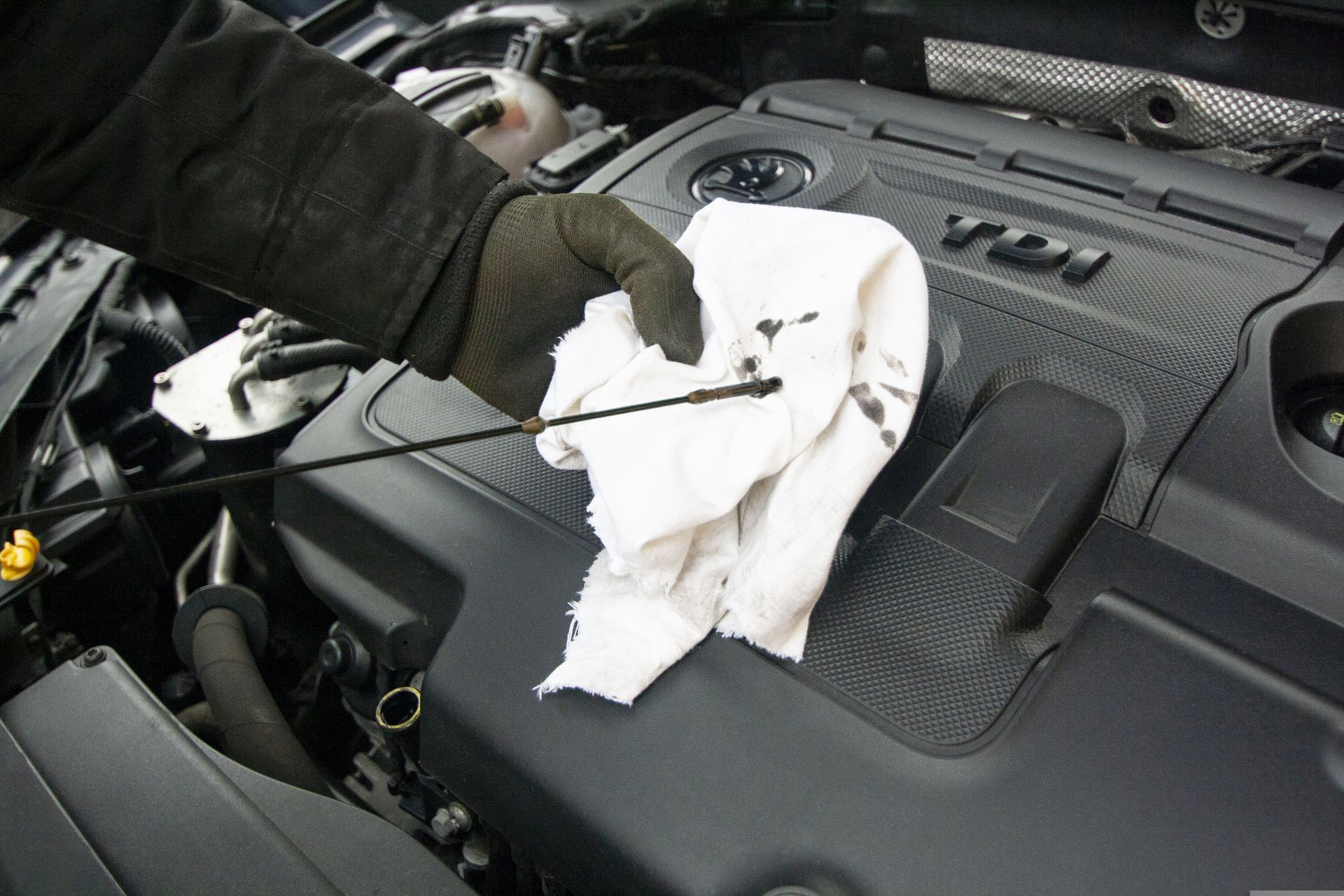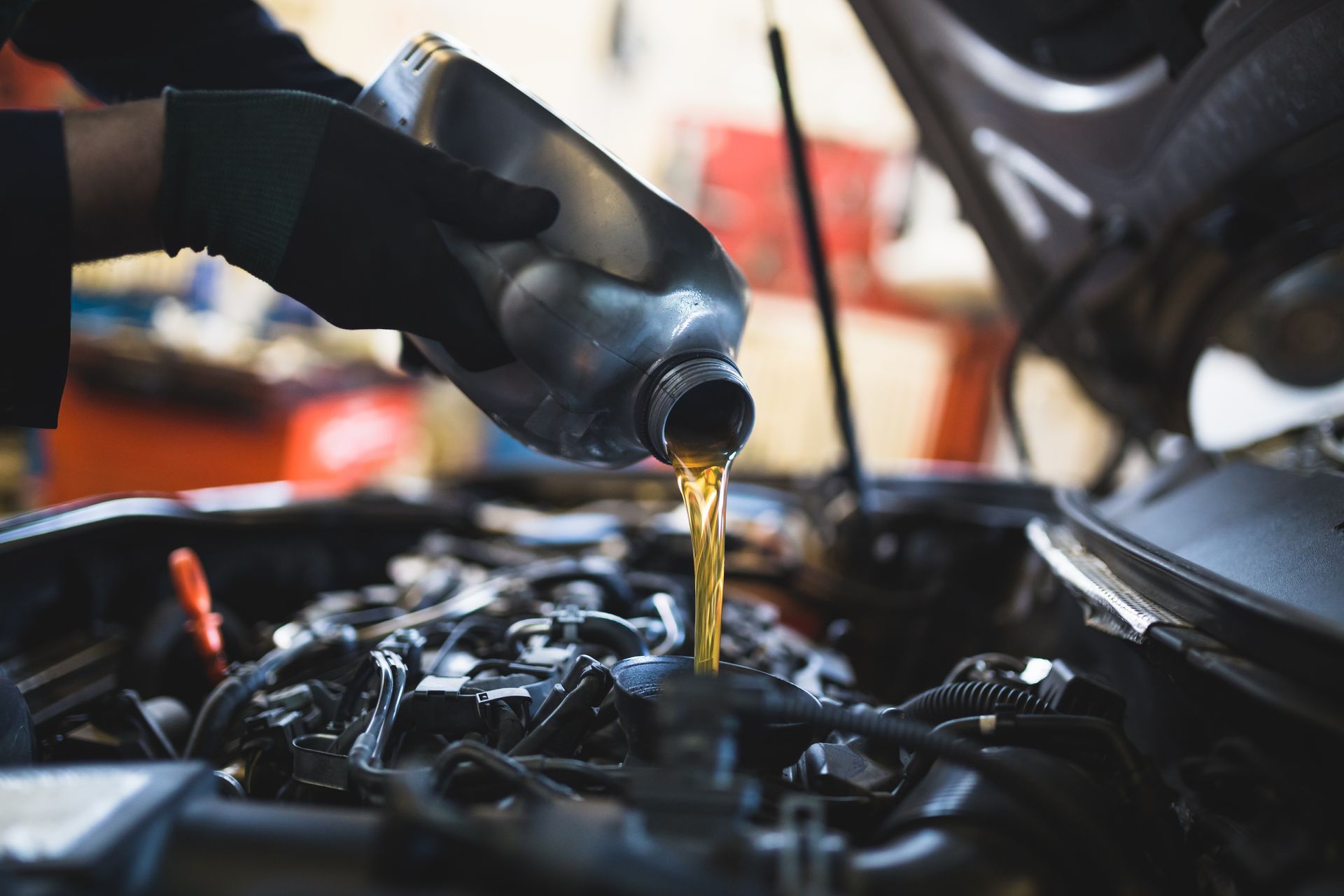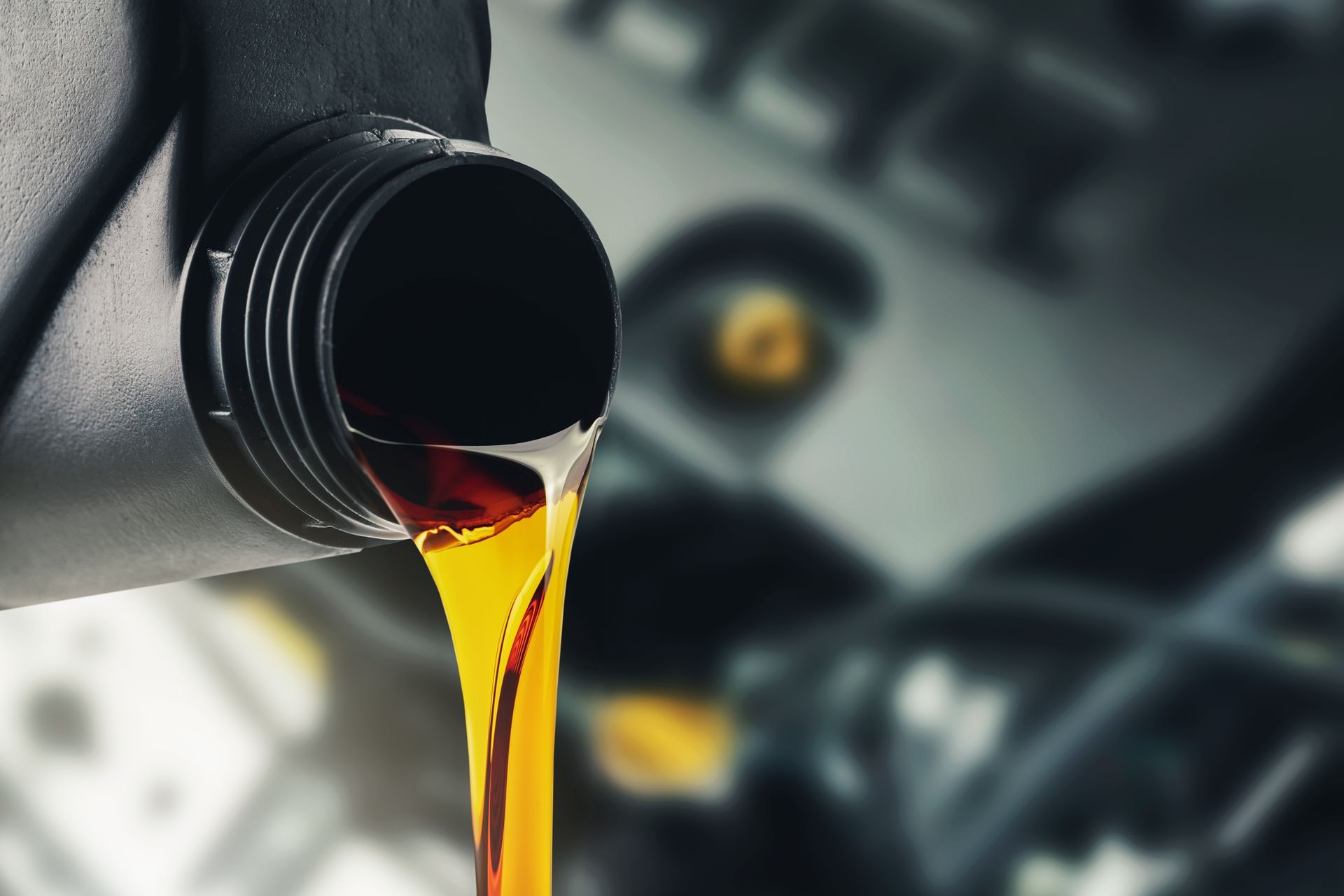5 Common Oil Change Mistakes That Can Damage Your Engine in Grand Rapids
Keeping your car's engine healthy means changing the oil regularly. Many car owners try to save money by doing this task themselves. However, not everyone does it correctly. Simple mistakes during an oil change can cause serious engine damage over time.
Using the wrong type of oil for your vehicle can lead to reduced engine performance, poor fuel efficiency, and even complete engine failure. The owner's manual specifies the correct oil type for a reason. Each engine is designed to work with specific oil viscosity and formulation.
Waiting too long between oil changes is another common error. Old, dirty oil doesn't lubricate properly and can cause parts to wear out faster. We see this problem frequently in our shop, where engines suffer unnecessary damage that could have been prevented with regular maintenance.
Key Takeaways
- Regular oil changes with the correct oil type protect your engine and improve fuel efficiency.
- DIY oil changes require proper tools, techniques, and disposal methods to avoid damaging your vehicle.
- Professional maintenance helps catch potential problems early and ensures proper lubrication for your engine.
5 Common Oil Change Mistakes That Can Damage Your Engine
Oil changes are crucial for engine health, but simple errors during this maintenance task can lead to serious problems. When done incorrectly, what should protect your engine might actually harm it.
Draining Oil When The Engine Is Cold
Cold oil doesn't flow well. It becomes thick and sticky, making it difficult to drain completely from the engine. When you drain cold oil, you leave behind sludge and contaminants that should be removed.
We recommend warming up your engine for about 5-10 minutes before an oil change. This gets the oil flowing properly and helps suspend particles that need to be drained. However, be careful not to make the engine too hot as you could burn yourself during the process.
Remember that warm oil drains faster too, saving you time and ensuring a more complete oil change. This simple step helps remove more harmful contaminants from your engine.
Failure To Remove The Oil Filler Cap Before Draining
This common mistake creates a vacuum effect in your engine. When the oil filler cap remains in place during draining, air can't enter the system to replace the draining oil.
This causes two major problems:
- Slower draining process
- Incomplete oil removal due to vacuum resistance
To avoid this issue, always remove the oil filler cap before you start draining. This simple step allows air to enter the system, creating a smooth flow and ensuring more complete oil removal.
The old contaminated oil drains more thoroughly when air can freely enter the system, preventing harmful residue from mixing with your fresh oil.
Overfilling The Oil
Adding too much oil to your engine is just as harmful as having too little. Excess oil gets whipped by the crankshaft, creating a frothy mixture that can't properly lubricate engine parts.
Signs of overfilled oil:
- Blue exhaust smoke
- Oil leaks
- Unusual engine noises
- Damage to seals and gaskets
Always check your owner's manual for the exact oil capacity. After adding oil, wait a few minutes for it to settle in the oil pan. Then check the dipstick to ensure the level falls between the minimum and maximum marks.
If you've added too much, don't drive the vehicle. Instead, drain the excess properly to prevent expensive engine damage.
Skipping The Final Oil Check After Running The Engine
Many people finish an oil change by simply adding new oil and considering the job done. This oversight can be costly. The new oil needs to circulate through the entire engine before you can accurately check the level.
After adding fresh oil, we recommend running the engine for 2-3 minutes. This allows the oil to reach all engine components and fill the oil filter. Turn off the engine and wait about 5 minutes for the oil to drain back to the pan.
Now check the dipstick again. This final reading is much more accurate and may reveal you need to add a bit more oil. This step catches potential problems before they damage your engine.
Skipping The Oil Change Interval
Regular oil changes are vital for engine health. As oil ages, it breaks down and loses its protective properties. Contaminants build up, and the oil becomes less effective at cooling and lubricating engine parts.
Factors that affect oil change frequency:
- Driving conditions (city vs. highway, hot or cold climates)
- Oil quality (conventional vs. synthetic)
- Vehicle age and condition
- Driving habits (short trips vs. long drives)
Don't just follow the maximum interval in your manual. Consider your specific conditions. Many newer vehicles have oil life monitoring systems that alert you when an oil change is needed based on actual driving data.
Using poor quality engine oil or extending intervals too far leads to sludge buildup, reduced engine life, and potentially catastrophic engine damage.
Get An Oil Change At Auto Centric In Grand Rapids
We at Auto Centric in Grand Rapids are ready to help you avoid the common oil change mistakes mentioned above. Our certified technicians have the expertise to properly maintain your vehicle's engine.
Auto Centric is proud to be an authorized lubricant dealer offering premium products including SK ZIC engine oil. This high-quality oil provides superior protection for your engine components and helps extend engine life.
Our oil change service includes:
- Complete drain of old oil
- Replacement with fresh, manufacturer-recommended oil
- New oil filter installation
- Multi-point inspection
- Proper disposal of used oil
We handle all types of vehicles - from everyday commuters to luxury cars. Our team also services motorcycle lubricants, ensuring your two-wheeled vehicle gets the same quality care.
ZIC engine oil, one of our featured products, is engineered to perform in extreme temperatures and provides excellent protection against engine wear. We'll help you select the right viscosity and formula for your specific vehicle.
Don't trust your vehicle to just anyone. Our technicians take pride in doing the job right the first time, helping you avoid costly engine repairs down the road.
Schedule your next oil change with us by calling (616) 379-9416 or visiting our website. We're located at 5355 Plainfield Ave NE in Grand Rapids.











